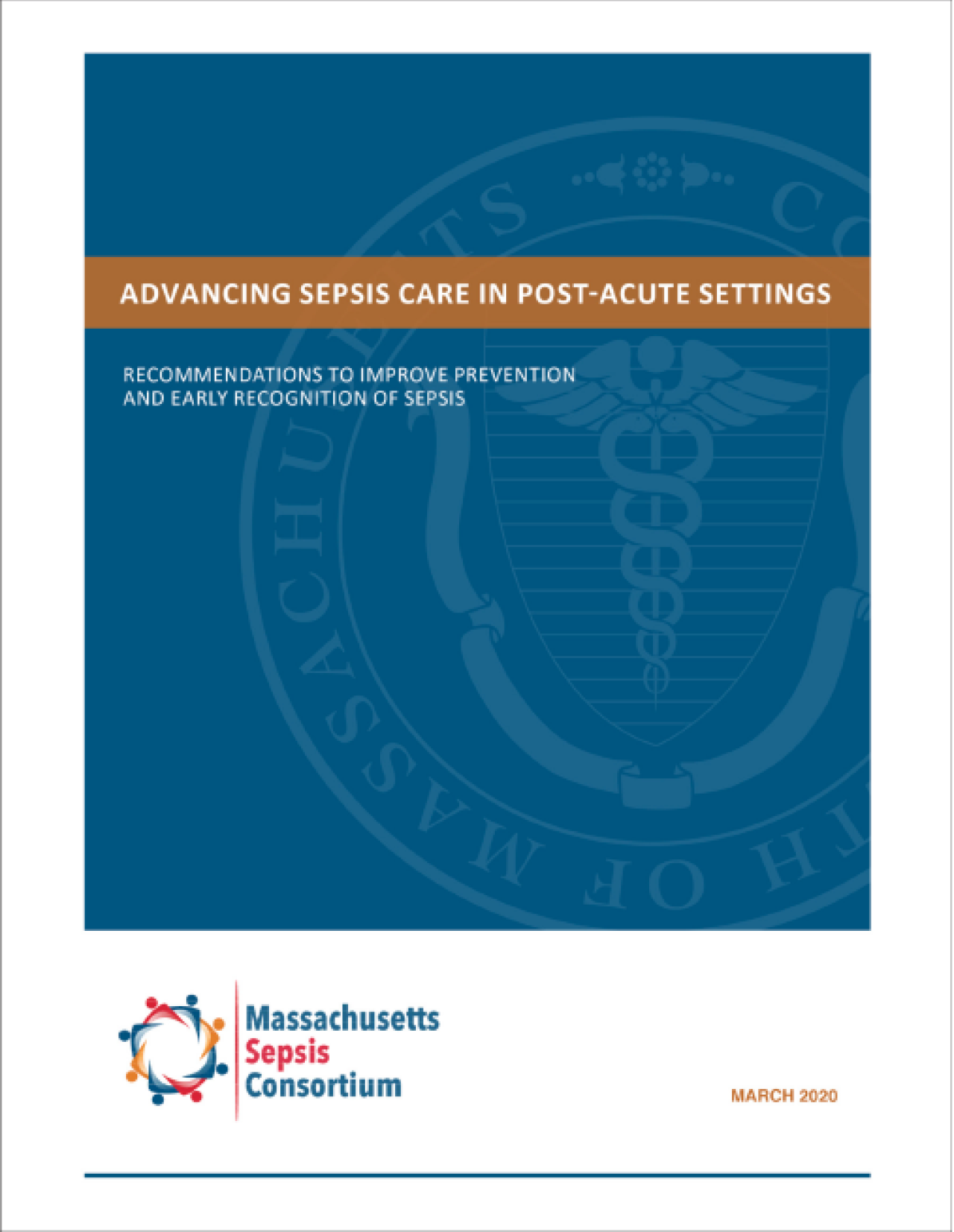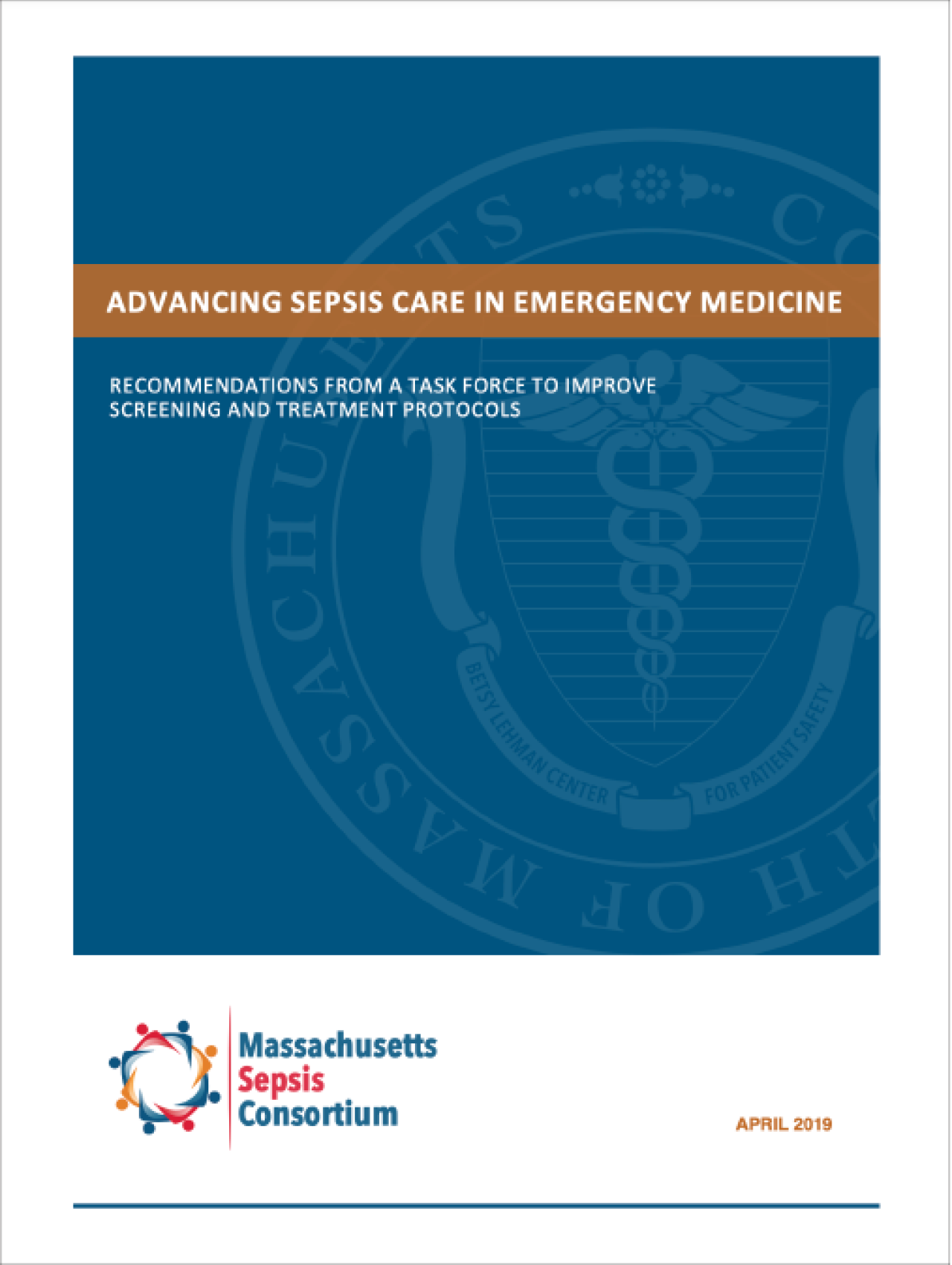Tools to improve care and awareness can help meet ongoing challenge of sepsis
September is Sepsis Awareness Month, and the Massachusetts Sepsis Consortium is aiming to improve recognition and treatment of sepsis in all care settings. The Commonwealth slipped from 25th to 29th in the U.S. for sepsis mortality over the two year period between 2017 and 2019 according to the U.S. Centers for Disease Control and Prevention, trailing states such as California, New York, Florida, New Hampshire and Rhode Island.

Sepsis in post-acute care
Because infections associated with a number of conditions, including COVID-19, can rapidly advance to sepsis, the Consortium developed tools and recommendations for improving sepsis care in two key health care settings: post-acute sites and emergency departments.
Improving care in high-risk settings
Advancing sepsis care in post-acute settings is a report and toolkit that includes evidence-based resources for long-term acute hospitals, inpatient rehabilitation facilities, skilled nursing facilities, home health services, and more. People who receive care from these providers — those with multiple chronic health conditions, individuals over the age of 65, medically fragile children, and people living with disabilities — are all at higher risk of developing sepsis.
Though not all post-acute providers have the staffing or expertise to begin treatment of sepsis, they are well-positioned to recognize subtle changes in patients with infections and monitor them for early signs of sepsis.

Sepsis in emergency medicine
Because sepsis commonly begins in community settings, improved recognition and treatment of sepsis in emergency departments is an important focus of the Consortium’s work. The report and toolkit, Advancing sepsis care in emergency medicine, was developed by a task force that studied available evidence and current practices in all 71 facilities in the state before issuing a series of strong, actionable recommendations to improve sepsis care and outcomes.
Sepsis is a leading cause of death in hospitals, a top driver of health care spending and the number one reason for hospital readmissions in the Commonwealth.
Increasing public awareness
The Massachusetts Sepsis Consortium is also leading a statewide effort to boost awareness of sepsis.
Despite being a top reason why people end up in the hospital, only 65% of adults in the United States are aware of the term “sepsis,” according to a recent survey by the Sepsis Alliance. More than 40% of adults do not know that sepsis is a complication of an infection.
Data indicate a need to focus on providing information to people of color. According to one study, Black and “other nonwhite” individuals have nearly twice the incidence of sepsis as white individuals. The Sepsis Alliance survey found that those who identify as white are more likely to be aware of sepsis (67%) than those who identify as Black (57%).
This year, the Consortium launched a new suite of materials for Sepsis Awareness Month as part of an ongoing “Be Sepsis Smart” campaign, including a video in Spanish and English. Articles about sepsis will also appear in local news outlets across the state. Dr. Michael Filbin at Massachusetts General Hospital helped produce Ask the doctor: FAQs about sepsis and Rockport resident Bela Maranhas generously told her story for Sepsis survivor shares her experience with the life-threatening disease.
The Massachusetts Sepsis Consortium is a collaboration of more than 25 health care organizations working to lower sepsis morbidity and mortality across the state. Learn about all of its work here.